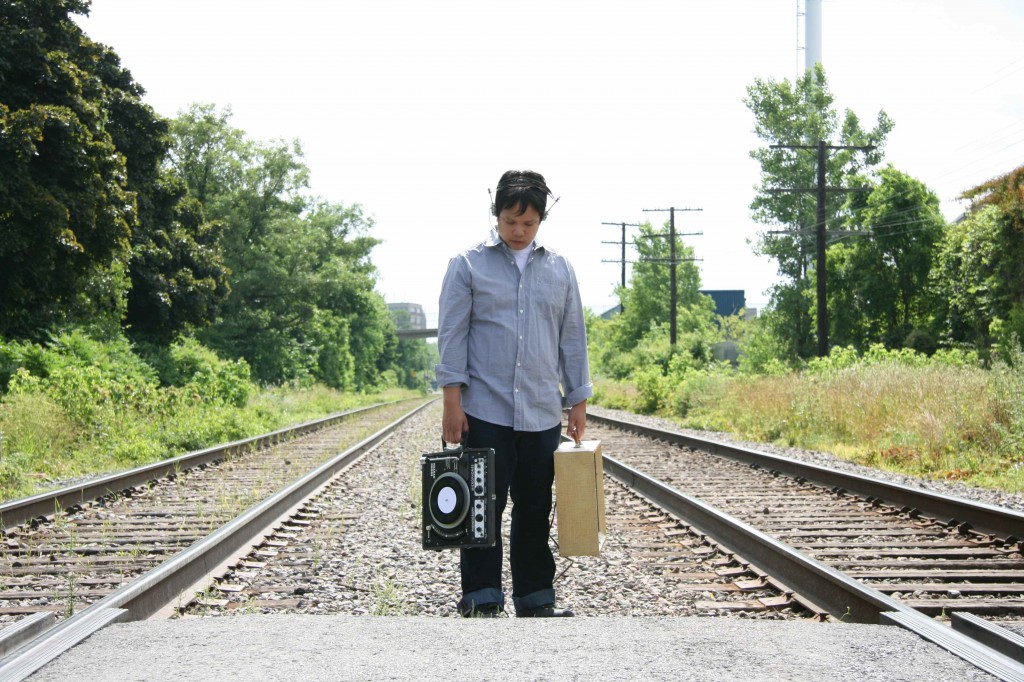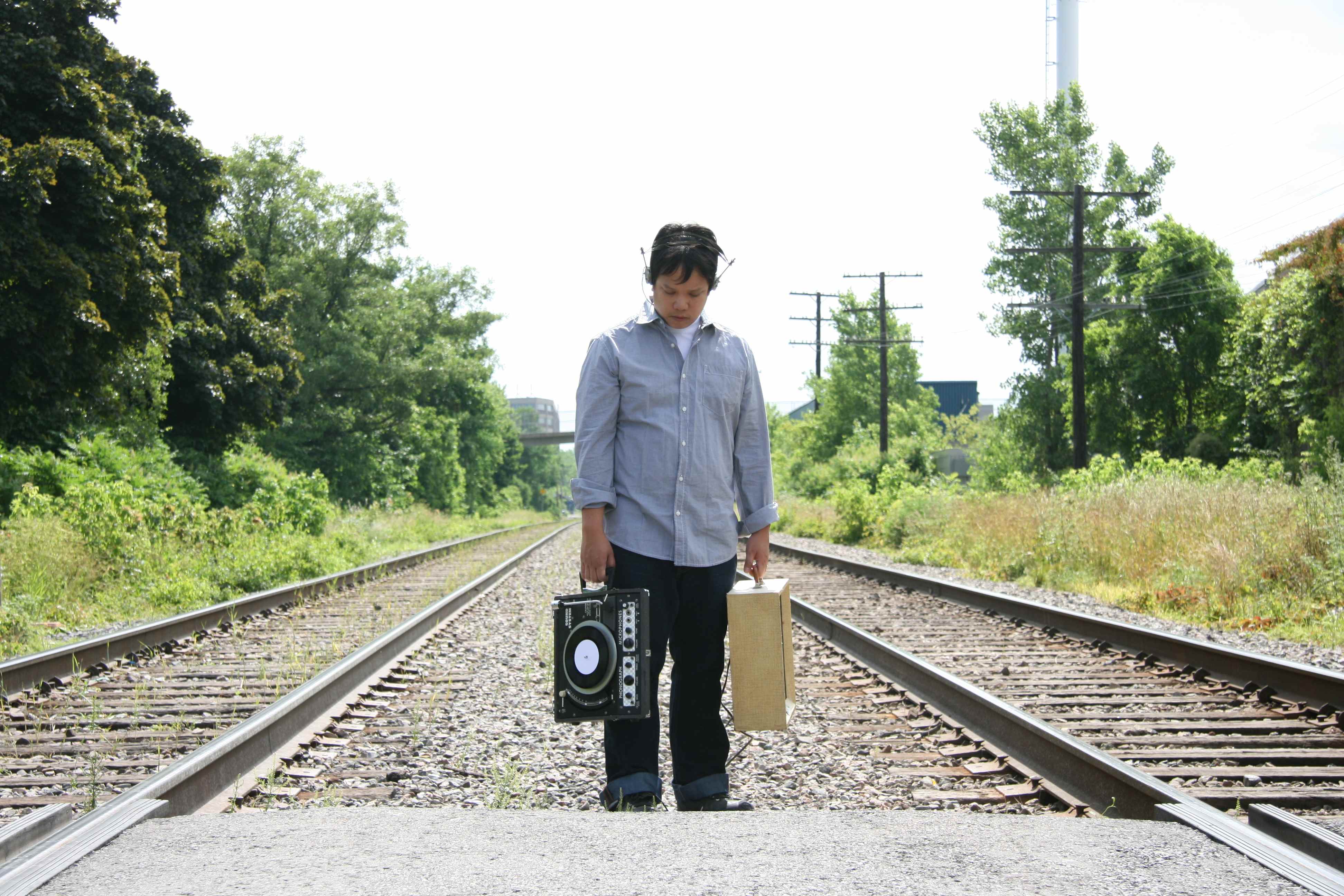
Pushing boundaries is simply what Eric San does. Over the course of his already 24-year career, Kid Koala has tested his own creative boundaries, challenged his collaborators to think differently about their work, and experimented endlessly with instruments and turntables. In the process, he’s challenged his fans’ expectations and led them through a maze of musical twists and turns.
And he’s not quite done yet. His most recent effort, 12 bit Blues, boldly plays with old-school raunchy, Delta-blues beats, tones, and tunes. From the sounds of it, it seems the Vaudeville Tour he’s built around the album will be pushing some boundaries of its own.
“We didn’t really know what to expect,” said San. “There aren’t usually these kinds of events happening in these venues. I actually didn’t know how it was going to go until we did our first show in Geneva a month ago.”
Describing Kid Koala as a jack of all trades would be bit of an understatement. Let’s say he’s not fully content with completely shaping and altering the very world of ‘scratch DJ-ing’ and hip-hop by sampling acts as legendary as the Beastie Boys, Radiohead and a Tribe Called Quest.
Kid Koala wanted more so he followed his many curiosities and succeeded at writing and illustrating children’s books and at laying down tracks for projects as different as Sesame Street and Scott Pilgrim vs. the World. He’s also created multi-media, multi-sensorial immersive show spaces in which he played music meant to cater to every sense. He’s toured with an experimental edgy (borderline sludgy) band called The Slew while simultaneously working on children-focused tracks, lullabies and soundtracks. He’s an interesting guy.
There is something slightly disarming about a person who can speak with equal passion about all of these things. Despite having all the street cred’ necessary to jump into the highlife, Kid Koala has kept his focus on the music in a world now packed with rockstar-status DJs.
“I’ve always found it kind of funny, because I’ve never met a DJ […] and I don’t care how much they’re making by show here. At the core, they’ve always been that shy kid,” San explained. “They were the ones at high school who felt more comfortable in front of $800 worth of turntable equipment than being out there as like, the captain of the football league.”
And that, perhaps, is why so many people connect to the music they create and the performances they put on — because they just seem like introverted guys or gals who love what they do. But by being human and relatable, artists like Kid Koala allow themselves to be vulnerable to glitches and imperfections. For most of us, that part of being human is something we try to avoid and steer away from. But Kid Koala kind of likes the mistakes and he almost prefers them to the perfect deliveries.
“The shows that go perfectly, you’re always saying ‘Yeah! That was awesome’. It’s not that they’re forgettable, but it’s just that all of a sudden, the stars all aligned and it just worked out,” said San. “But the times that it’s a complete disaster are the funniest ones. They’re the ones that end up making you smile the most. I like to have that element of danger.”
As far as success goes, the ability to measure it in millions of dollars isn’t really the point for him. It’s the testing of the boundaries; it’s the power to distort and play with sounds and how we hear them. It’s the ability to explore every creative curiosity and work with people from every walk of life. That is success.
Kid Koala ‘stepped things up’ a long time ago. He was first introduced to the turntables at the age of 14 and has grown and evolved with them since. Recently, more eyes have turned to the scratch genre, and people have started trying to analyze the tracks.
This led to Kid Koala having to clear things up every once in awhile. It seems a few of our perceptions about electronic music may have been off.
“It’s not really just a kind of collage. I mean, it is essentially. That’s how it starts off. But I think what’s different and unique about the [scratch scene is] it’s never been about the equipment, or even the source material, but what you’re able to do with it,” said San.
The type of work artists like Kid Koala do involves not simply smooth over-laying and switching between two songs, but using bits of songs as the actual notes of your track. And just like the violin is a difficult instrument to learn because of the lack of clear demarcation points on its bridge, vinyl offers only the lines, bumps and scratches on its surface as guidance. Every inch of the vinyl has a note or sound, and scratch DJs seek out every sound and nuance individually.
Kid Koala plays the Corona Theatre (2490 Notre-Dame St. W.) on Thursday, Nov. 29. Tickets are $31.90 for general admission.




